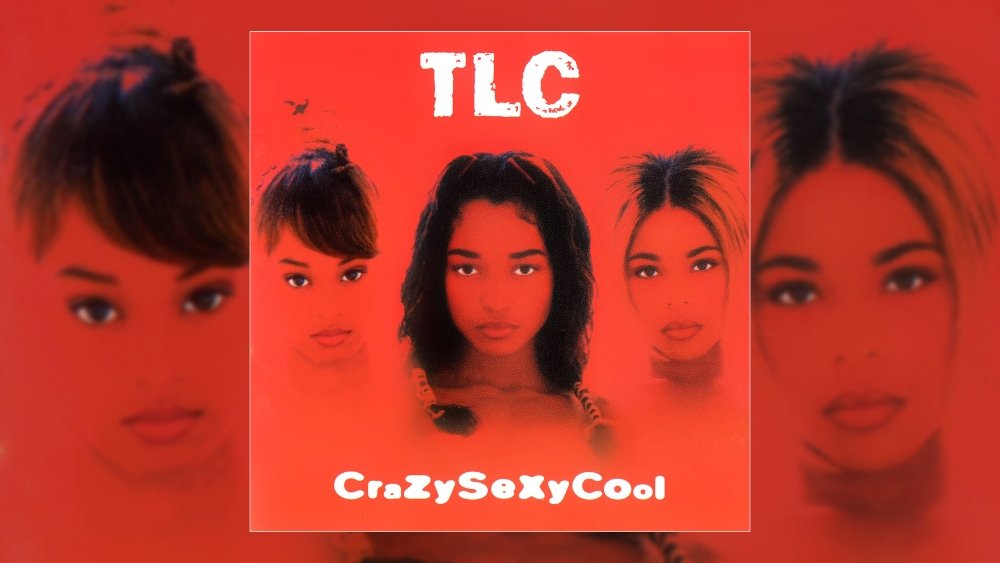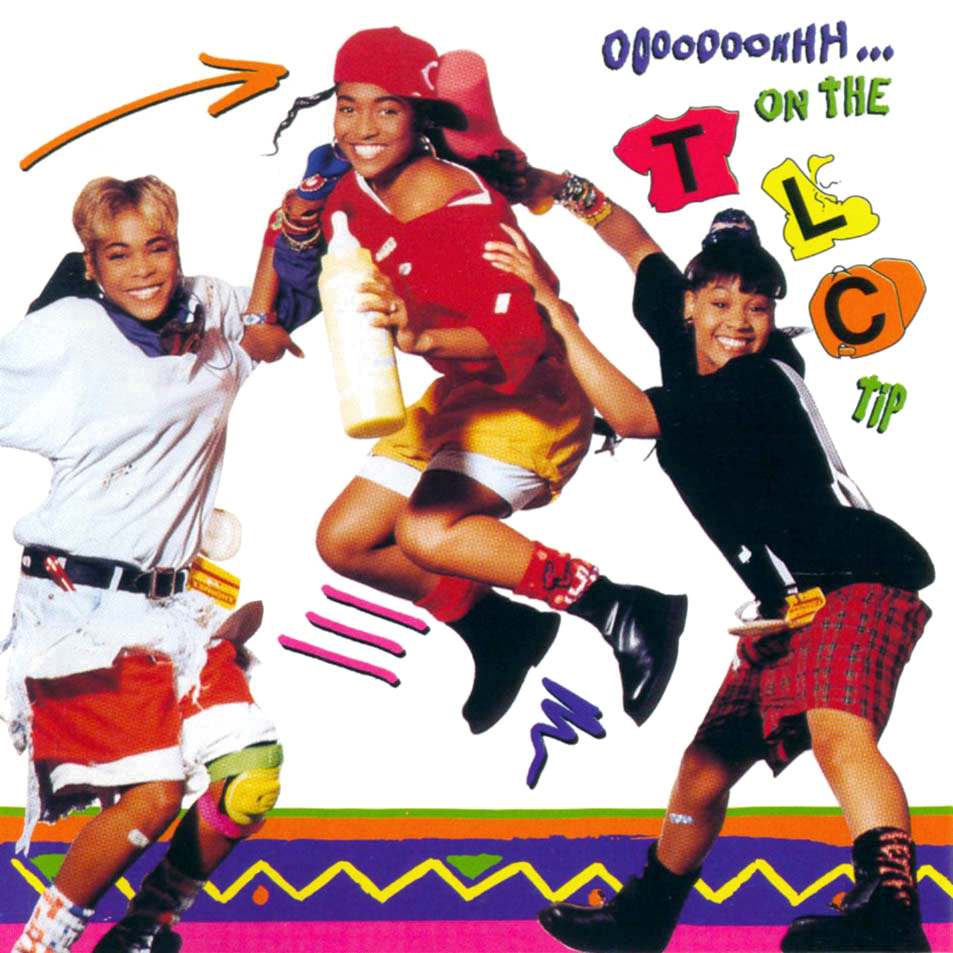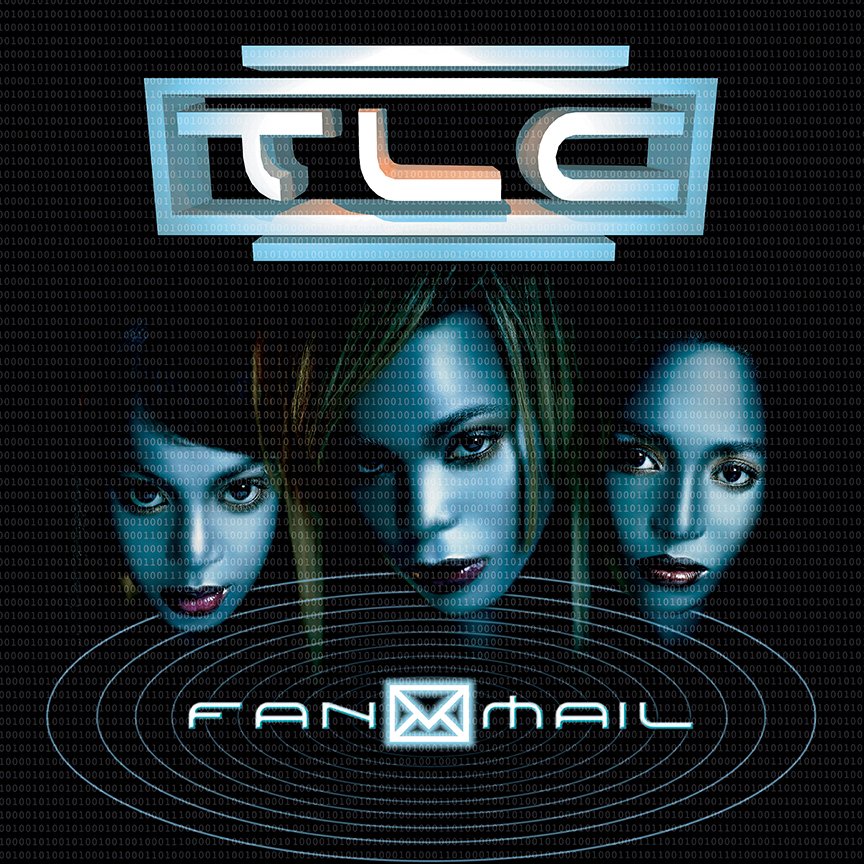Happy 30th Anniversary to TLC’s second studio album CrazySexyCool, originally released November 15, 1994.
The ‘90s span my formative years, from about ages eight to eighteen, so most of my attention at the time was centered around Sega Genesis, Super NES and PlayStation. Some things were so monumental that they captured nearly everyone’s attention, including my own. Like the reign of the Michael Jordan-led Chicago Bulls crushing the dreams of most of their NBA competition. The decade cast some dark clouds as well, like illicit drug trafficking exploding to become the major economy in many of America’s urban cities. The often-unforgiving competition inherent to the drug trade left a trail of tears for survivors left to mourn the casualties of the violence and mass incarceration. Sexually transmitted diseases and recreational drug use provided additional obstacles for teens simply trying to traverse life’s rugged concourse during the final decade of the millennium.
But back to the light-hearted side of my developmental decade for now, in which I reminisce on memories of my first crush, high school sweethearts, and all too painful teenage break-ups. Through the good and the bad, ‘90s kids could always rely on one group to make consistently great music and set fashion trends that personify the tumultuousness of adolescence, teens, and early adulthood: TLC.
In retrospect, I view the ‘90s as a technological bridge period. We were on the cusp of converting our lives to full-time internet and cell phone usage, while having advanced to owning televisions and landline phones in multiple rooms in many households. It was before text messaging, so teenage love was expressed through handwritten notes, inconspicuously passed during classroom hours. Late afternoon and weekend dates were sometimes as short as a quick bite to eat in the food court of your local shopping mall, so the real quality time was spent over hours of late-night telephone conversations. As a boy, I always remember TLC in the background of my telephone conversations, like the wise elder sister to the girl I was speaking with at the time. I remember my female counterparts not merely following the music of the superstar trio, but identifying and drawing real inspiration from their messages.
I was introduced to TLC by my very first innocent girlfriend, who requested that I add the song “Hat 2 The Back” to a mixtape I was preparing for what I thought was our front stoop courtship. The groovy, up-tempo track fit perfectly alongside my favorite songs from A Tribe Called Quest and Pete Rock & C.L. Smooth. The ladies were an auditory anomaly with the contrasting vocals of Tionne “T-Boz” Watkins and Rozonda “Chilli” Thomas, paired with the bubbling creativity of Lisa “Left Eye” Lopes. I became a fan almost instantly in the Spring of 1992.
Listen to the Album:
“Hat 2 The Back” defied the convention of what girls were supposed to look and sound like during a time when American film, television, and music mainly pushed images of the strong high school jock, inevitably charming one of the damsel cheerleaders as the ideal romantic storyline. TLC’s songs rang as empowering anthems and helped expand social constructs for boys of the decade, in accepting that our girlfriends may have been smarter, more expressive and athletic than we were.
TLC’s debut album Ooooooohhh... On the TLC Tip (1992) was groundbreaking across all facets. Songs like the inaugural single “Ain’t Too Proud 2 Beg” saw these young women setting the terms of their own sexuality, while “What About Your Friends” removed men from the equation altogether, proving we weren’t always the center of female attention. The album was unique and rallied a broad fanbase who purchased copies in droves, propelling the ladies into superstardom.
In the wake of their successful debut, it seemed everything usually left private for young women was publicized. Like many other blossoming young talents, the women dated other high-profile artists and athletes, and engaged in legal disputes with their record label over their initial contract. Fortunately for the awaiting fanbase, the ladies returned to the studio to transfer some of their experiences onto a sophomore LP.
The follow-up album’s lead single reunited the ladies with producer/songwriter Dallas Austin, who captured T-Boz’s relationship anguish into an urban revenge thriller. Released on Halloween of 1994, “Creep” gave a more proactive response to the girlfriends who have been haunted by neglect and infidelity. Instead of stewing over her man during an all-girl slumber party of tears and Häagen-Dazs, TLC was submitting an updated philosophy for the ultimate “get back.” Like many of their previous songs, T-Boz takes the lead, allowing her smooth voice to teasingly make her confessions: “So I creep, yeah, 'cause he doesn't know what I do / and no attention goes to show / so I creep, yeah, just creepin' on / but I'll know 'cept nobody is supposed to know.”
The instantly catchy song was accentuated with Austin’s brilliant beats, horns and drums sprinkled over a sample of Slick Rick’s 1989 single “Hey Young World” and Chilli’s background vocals. “Creep” proved irresistible even to the begrudged male counterparts and went on to sell over 1.5 million units domestically. Beyond setting the sophomore album up to be a smash success, “Creep” landed the women their first spot atop the Billboard Top 100 chart and garnered a GRAMMY award for Best R&B Performance by a Duo or Group with Vocals.
CrazySexyCool contained an all-star cast of super-producers including Jermaine Dupri who offered two tracks in “Kick Your Game” and “Switch,” both of which showcased Left Eye’s rhyming ability and conceptual approach to songcraft.
Watch the Official Videos:
“Red Light Special” summoned the skills of the romance writing icon Babyface, who slowed the pace for a matured version of the group’s signature zone of female empowerment through sexual expression. The sizzling lyrics in the chorus (“Baby it's yours, all yours / if you want it tonight / just come through my door / take off my clothes / and turn on the red light”) saw T-Boz and Chilli choreographing the bedroom action, which struck a chord with the young women of that period in terms of embracing their assertiveness.
Sean “Puffy” Combs has a noticeable presence throughout the LP, appearing on the light-hearted “Sexy-Interlude” and enlisting one of his premier hitmen, Chucky Thompson, to score the other intermissions. Thompson and Combs’ biggest feat was their cover of the incomparable Prince’s 1987 single “If I was Your Girlfriend.”
TLC demonstrated their keen sense for winning collaboration in pairing with the Atlanta-based production masterminds Organized Noize, who had come to prominence for producing OutKast’s acclaimed debut album Southernplayalisticadillacmuzik (1994) earlier the same year. Their masterstroke together was “Waterfalls,” a rare example of perfect production, poignant songwriting, and flawless vocal delivery. The lyrics offer cautionary tales of the allure of street life and uncontrolled sexual exploration. Interwoven by the melodic chorus (“Don't go chasing waterfalls, please stick to the rivers and the lakes that you're used to / I know that you're gonna have it your way or nothing at all / but I think you're moving too fast”), “Waterfalls” offers a more introspective look at the decade, and still invokes emotion when reflecting on loved ones lost during the 90s.
“Waterfalls” went on to help the ladies earn two more GRAMMYs including Record of the Year and Best Pop Performance by a Duo or Group with Vocals. Beyond the song’s critical acclaim and resulting accolades, for a kid who came of age during this period, I include this as a song that both defined TLC as a group and spoke directly to the core of my generation.
CrazySexyCool is arguably TLC’s truest R&B offering, as it remains fluently smooth and harmonic over the almost constant mid-tempo pacing. Reportedly, Left Eye had less creative control as she was embroiled with legal and personal issues during much of the album’s recording. Big names from the rap world are present throughout, including OutKast’s André 3000, who was still a budding talent at the time when he checked in for the song “Sumthin' Wicked This Way Comes,” also produced by Organized Noize. Phife of A Tribe Called Quest opened the LP with a freestyle type of rhyme tribute, built around his 1993 shout-out to the group on his song “Oh My God”. Busta Rhymes also drops in to explain his desire for a crazy, sexy, cool woman in the mid-90s.
Enjoying this article? Click/tap on the album covers to explore more about TLC:
TLC’s authenticity and soulfulness helped CrazySexyCool become an elite diamond certified LP and was a constant staple inside of discmans, cars, and portable stereo speakers during the midpoint of the ‘90s. Sure, its songs represented another addition to the litany of young woman anthems of the decade, but the album’s appeal was truly boundless. Indeed the group’s vivid storytelling and their contributors’ stellar production were perfectly executed to propel T-Boz, Chilli, and Left Eye as the top voices of their generation.
CrazySexyCool is as ‘90s as one of those clear plastic landline phones we used to discuss how dope it was. Or the pink Timberlands guys were inspired to buy their girlfriends to prevent them from creeping. The album is amongst the first five or so that come to mind when thinking of the ultimate ‘90s soundtrack, and how it felt to be young during that decade. I learned a lot from it, was thoroughly entertained and consider myself fortunate that it helped shape me and my friends during our formative years of growing up inside a crazy, sexy, and cool decade.
LISTEN:



